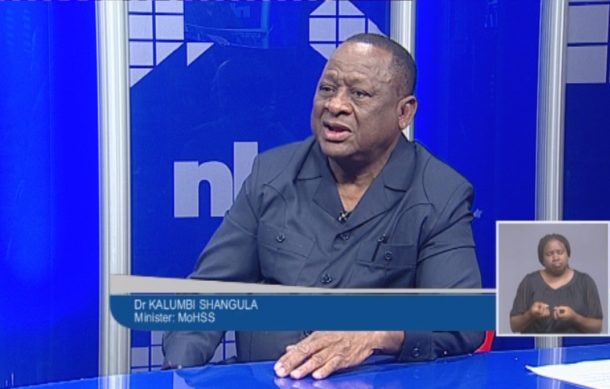
Health and Social Services Minister, Dr. Kalumbi Shangula, says the implementation of the Public Procurement Act has significantly impacted the availability of medicines and clinical supplies.
In a ministerial statement on the procurement process for pharmaceutical and clinical supplies in the public health sector, Dr. Shangula made a pointed reference to a multimillion-dollar tender for the supply of condoms, surgical gloves, and other items, which caused a public outcry, causing the tender to be cancelled earlier this year.
As a general rule, the procurement of pharmaceutical products and clinical supplies for the Health and Social Services Ministry is done in line with the Public Procurement Act.
There are more than 1400 pharmaceutical products and clinical supplies on the procurement list, and they are grouped into three categories: anti-retroviral products, pharmaceutical products, and clinical supplies.
All bids higher than $25 million are handled by the Central Procurement Board through an open international or national bidding process.
Health Minister Dr. Kalumbi Sangula told the National Assembly that the now-infamous condom tender was submitted by the Health Ministry in August 2021.
The bid of N$650 million had 419 items, including gloves, condoms, operation material, and ICU items, among others.
The Central Procurement Board cancelled the two-year clinical supply tender, sparked by a public outcry.
Following that, new clinical supplies bid for six months, totalling N$67.5 million, was issued in June, attracting 83 bidders.
Earlier this month, the Procurement Board finalised its selection and is now busy with its considerations.
"It is worth mentioning that there are around 56 items not selected for awards. If all goes well, notice of contract awards will be issued by the end of November. The contract may only be in place by January 2024, considering the mandatory provision of a performance guarantee."
Another two-year supply tender for general pharmaceutical goods had also not been finalised due to a court process instituted by an aggrieved bidder. Dr. Shangula added that it is clear that no longterm supply tender will be finalised by the Central Procurement Board this year and that internal supply measures will continue.
The minister, however, says the procurement of medicines in Namibia has become a lengthy and cumbersome process. This has required the ministry to engage in highly costly procurement and buy-outs for pharmaceuticals and clinical items.
About 85% of Namibians depend on state-funded healthcare services, provided by more than 1500 health facilities spread across the country.





